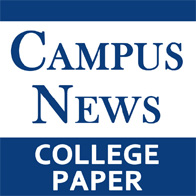By Matthew Khan
Campus News
The resume is arguably one of the most powerful communication and marketing tools that we will ever encounter during our academic and professional careers. While teaching Introduction to Business, I hope to give my students skills that they can use long after they have received their grades. We dedicate class time to resume writing. Moving through the semester we continuously focus on how business concepts and terms are intertwined across chapters. More often than not, students have a tendency to rapidly eject subject matter out of their minds once they have been tested on it. It would appear that there is an unwritten rule that states that for the second exam a student does not need to know any material from the first exam. The study of ethics in business for example illustrates the need for cumulative understanding. Ethics can be discussed by itself for hours and hours. Ethics can also be discussed at length while covering other topics; the likes of accounting, marketing, management, and motivation, to name a few.

Effective resume writing ties together business concepts like branding, marketing, communication and presentation. Remember, the purpose of the resume is to land the interview. Your resume is also your opportunity to set yourself apart from the competition. A good resume helps to define your brand. Imagine for a few seconds that you are an employer looking to hire a new employee. Ask yourself what type of candidate will you be looking for? What would be the deal breakers? Trying to understand what motivates a company to hire will be helpful. Reviewing your resume is usually one of the first steps of the screening process. Serving on a five-person hiring panel for two years at a previous place of employment, our team oversaw the hiring of close to thirty employees. It was definitely a cumbersome task as candidates often had impressive credentials and resumes.
I will let you in on a little secret that affected my contributions to the hiring committee. There were three questions that I always asked myself: Is the candidate a team player? Is the candidate willing to acquire new skills? Is the candidate intending to give our firm quite a few years of service or are we going to be a short-term stop for them? When a company is looking to hire a new employee they are looking at the candidate as an investment. Over the course of time, your employer will be compensating and training you in hopes that you will be forwarding their mission statement. Use your resume to motivate the hiring committee! Show them that you are a team player! Show them that you care about their company!
In today’s age of automation there is a proclivity to overlook details. Make sure that your resume is custom tailored to the job posting. It is easy, and tempting, to send out many resumes with a single click. By all means do not send a resume tailored for a job in the medical field to a company who is looking to hire in the legal field! How can someone logically deduce that your hiring will be a great investment if you are perceived as not knowing the type of job you are applying for? Be ethical! Do not lie on the resume.
Wherever you are in your career, show a potential employer that you are willing to learn, grow and be molded. Avoid using words like “I” and “mine”. These words have a tendency to establish territory and push others away. Instead look to be inclusive by using words like “we” and “our.” Including others can brand you as a team player long before a job interview.
Attempt to use numbers as much as possible. Numbers help to illustrate results. Instead of writing “worked on an IT project” try something along the lines of “worked on a three month IT project with six team members.” In that one sentence you have communicated that you can commit to a long-term endeavor in a team setting, which is exactly what an employer is looking for!
Of course be cognizant of proper grammar and punctuation. Use high impact words like organized and managed in conjunction with numerical references.
Revisiting the sentence from above, it can be stated “managed the schedules of six team members during a three month IT project.”
Space on a resume is limited and as valuable as beachfront property. Make the most of your resume and do not sell yourself short. Get into the habit of thinking “what is the thought process of the person I am dealing with?” and “what is going to motivate them to make a decision in my favor?” Happy writing!
 Matthew Khan is an Adjunct Professor in the Accounting and Business Administration Department at Nassau Community College in Garden City, N.Y.
Matthew Khan is an Adjunct Professor in the Accounting and Business Administration Department at Nassau Community College in Garden City, N.Y.





Comments